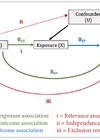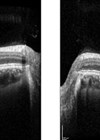Latest Contribution
Exploiting nature’s randomised trials of eye disease
Confounding and reverse causation in observational ophthalmic epidemiology Traditional observational studies are inherently limited in establishing a causal effect of an exposure on an outcome of interest. One fundamental limitation is confounding, whereby causation is incorrectly attributed to a third...
Randomisation, confounding & observational methods in ophthalmic epidemiology
Randomisation and confounding Understanding the relationship between an exposure and an outcome of interest is the central challenge in ophthalmic epidemiology. The exposure may be aetiological, taking the form of a putative risk biological factor, or therapeutic, in the form...
Lockdown and eye health – a case of accommodative spasm
A 25-year-old male presented to the eye casualty with a one-day history of sudden onset worsening vision. More specifically, he noted his vision was more blurred than usual and this was more exaggerated for near-work than for distance-work. He was...






